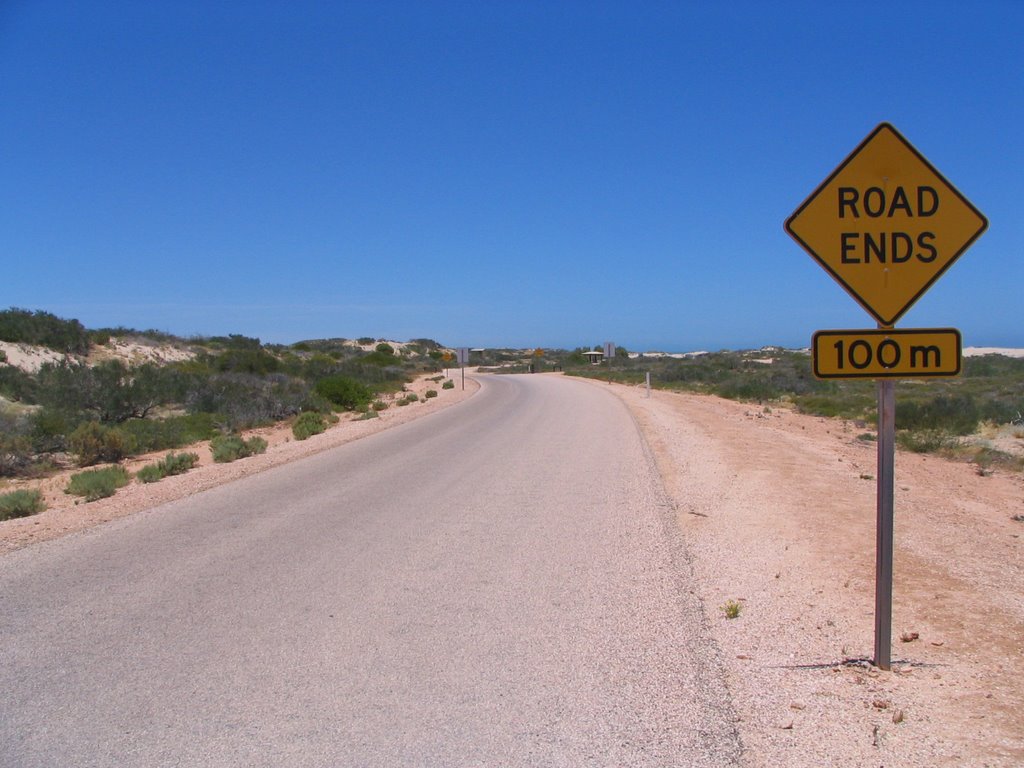Who has power in our cultures and how does it work? How do the ideas we have about what is ‘normal’ or ‘natural’ influence our decisions? What exactly is technology and how does it affect social change? Cultural Studies makes use of techniques from philosophy, history, sociology, human geography, anthropology, radical economics and political and critical theory to examine these questions in the context of contemporary popular cultures.
This course is an introduction to the subject taught by senior academics moonlighting from their day jobs at the University of East London. The course is free because we believe not only that education should be free but that knowledge is a crucial weapon in the war against all forms of inequality.
If you’ve never been to university, have been but miss the critical debates or are curious about who decides what counts as knowledge in the first place, we’d like to meet you.
There is no set reading (although we’ll recommend some if you’re interested) and no essay assignments, exams or deadlines (although we’ll set some if you want to challenge yourself). All the classes are interactive and give you the chance to think about everyday life in the context of the history of ideas. We’ll provide the learning environment. The rest is up to you.
The first part of the course was written and delivered by Dr Debra Benita Shaw and Dr Stephen Maddison. You can see the outline of that course and find links to all the slides below.
The second part of the course is open to anyone, whether or not they attended the first part (it won’t be assumed that you necessarily did), and is written and delivered by Professor Jeremy Gilbert and Dr Stephen Maddison. Professor Tim Lawrence might pop in.
Stephen, Debra, Jeremy and Tim are co-directors of the Centre for Cultural Studies Research. For more information on the Centre and the University of East London click here.
Jeremy is also the main organiser and main teacher of the Culture, Power and Politics series of seminars, which are another set of free open seminars, on very similar themes, hosted by the New Economics Foundation. Because there is so much overlap between the two sets of seminars, there won’t be any separate Culture, Power and Politics seminars this term. Attendees of the Culture, Power and Politics seminars are encouraged to attend this course, and attendees of this course are encouraged to check out the recordings on the Culture, Power Politics website. Clear enough? Don’t worry – just turn up and you will be bound to learn something interesting.
Here are the topics for part two of the course:
Tuesday February 23 2016
We are all migrants
‘Some bunch of migrants’ is what David Cameron called the refugee inhabitants of the Calais ‘jungle’ when Jeremy Corbyn went to visit them. But migration and movement of people has shaped every aspect of our lives and culture, from the forced migrations of the slave trade to the take-away menus on our high street. With the EU referendum just around the corner, and anti-immigration feeling running high in the UK, what hope is there for a progressive cosmopolitan politics today?
Tuesday March 8th
Computer World
‘Computer World’ is the title of Kraftwerk’s best album (yes it is). At just around the time they recorded it, economists, philosophers and social theorists were predicting that the ‘computerisation’ of society would change everything, creating a world of infinite information, without stable values, in which the very idea of being ‘modern’ would come to seem out of date. Were they right? The technological changes of the past few decades have radically changed how capitalism works – but is it still fundamentally the same old system?
Tuesday March 15th (NB this is only one week after the last session)
No Such Thing As ‘Society’
“There’s no such thing as society: only individuals (and their families)”. This was perhaps Margaret Thatcher’s most notorious public pronouncement. It was also one of the few moments when she made explicit her commitment to the ideals and assumptions of ‘neoliberalism’: the individualistic political philosophy that has come to dominate our politics, our culture and our lives.
After the 2008 crash, and the rise of Corbynism, we’re hearing a lot of discussion these days about the problems with neoliberal economics, which basically wants to privatise everything, drive down wages and cut taxes for the rich. We don’t hear so much about neoliberalism as a cultural ideology, promoting individualism, competition and greed in every area of life, from the nursery to the hospice. But without understanding this, we can’t understand how ruling elites have got away with imposing such an unpopular programme for so long.
We’ll have a think about this here – and take the opportunity to revise a bit of Marx, Gramsci and Foucault.
Easter break
Tuesday April 5th
This is what a feminist looks like
If historians of the future remember our era for anything, it is probably going to be the unprecedented revolution in the social status of women that we have lived through, and are living through. But the movement which made that change possible is still derided and feared, often seemingly unpopular with the very generations of young women who have benefited from it. At the same time it has raised a question which cultural and social theory is still struggling to answer – what is gender? Is it a social construct or a biological fact, or both, or neither? What does it mean to be a feminist today? Where does masculinity fit into all this? What are ‘performativity’ and ‘intersectionality’ when they’re at home? We will sort all this out in time to get to the pub before 9, honest…
Tuesday April 19th
Queer as Folk
Another huge cultural and political change of recent years has been the transformation in social attitudes towards same-sex relationships. It’s hard to believe now that both advocates and opponents of ‘gay liberation’ once thought that capitalism itself simply could not tolerate open same-sex relationships, and would be fatally undermined by any attempt to validate them. At the same time sexuality remains a highly charged political issue in many complex ways, and the broad field of ‘queer theory’ has been one of the most productive and contentious areas of cultural studies.
Tuesday May 3rd
The Multitude, the Metropolis (and the Mayor)
Since around 2000, there’s been growing interest in the English-speaking world in a particular strain of radical Italian thought. This ‘autonomist’ tradition believes in the creative, dynamic capacities of workers of all kinds, from factory workers to software engineers, and wants to liberate the creative power of ‘the multitude’ from capitalist control. Thinkers such as Hardt & Negri and Lazzarato offer very interesting ways of thinking about the rise of the ‘creative economy’, about how social media platforms generate profits from our everyday communications, and about why cities are so often hotbeds of radicalism and innovation. Two days before the London Mayoral election, we’ll also think about what potential there might be for Londoners to take back our own city from the clutches of the oligarchs and the Corporation of London.
Tuesday May 17th
Can you Feel it?
Once upon a time, Cultural Studies was basically about looking at everything as if it were a language: fashion, advertising, music and journalism were understood as different ways in which people ‘make meanings’. A lot of cultural studies still is like that – it’s a very useful and productive way of looking at things. But what about those aspects of our lives which are not easy to translate into ‘meanings’? What about feelings? What about the sounds of music, the colours of paintings, the physical thrill of watching a movie? These issues aren’t just important for thinking about art and music – they’re also crucial to understanding what motivates people politically and socially. We’ll explore these issues and try to get inside one of the most difficult but rewarding bodies of 20th century theory: the ‘schizoanalysis’ of Gilles Deleuze and Félix Guattari.
Tuesday May 31st
How did we get here?
How did we get into this mess? Rising inequality, climate catastrophe, miserable youth and a culture which can’t innovate: it’s hard to believe that until some time in the 80s, people actually believed the world was getting better. Can Cultural Studies help us to understand how we got here? It can and it will.
In this session we’ll bring together many of the ideas from the previous weeks, and the previous term, to see how they can help answer this questions. We’ll be looking at some classic Cultural Studies text such as Sturt Hall et. al’s Policing the Crisis published in 1978 (which starts off analysing newspaper reports about muggings, and ends up basically predicting Thatcherism before anyone else could see it coming), and asking if culture in 2016 is still stuck in ‘the long 1990s’.
Tuesday June 14th
Where are we going?
What kind of world are we heading into, and who gets to decide? Will artificially-intelligent robots be our masters? Will we be cyborgs ourselves? Are we already? What will happen to us once Chinese workers start demanding decent wages for making all the stuff we buy? Can the planet tolerate the levels of consumption we’ve got used to? Will technology save us or destroy us.? Are we already experiencing ‘post-capitalism’? Are we already ‘post-human’? All this and more will be revealed.
Below is the course outline from part one of the Introduction to Cultural Studies course, including links to slides:
Course outline 2015
Session 1: Tuesday 29 September
‘Making Meaning: Introduction to Semiotics’
We make meaning from everything we see around us every day, but what informs our decisions about what ‘things’ mean? This session will introduce you to the work of the French Philologist Ferdinand de Saussure who gave us the tools to understand the role of ideology in how we make sense of everyday life.
Slides from this session – OSE Semiotics
Session 2: Tuesday 13 October
‘Workers of the World Unite: Marx for Beginners’
Karl Marx is famous for predicting a workers’ revolution in Britain and, as some politicians will gleefully tell you, for being wrong. But Marx wrote a lot of books and said a lot of things that are still startlingly relevant to how we think about the organisation of social life and the role of economics in determining how we think about ourselves. In this session, we’ll develop our understanding of ideology and think about the relationship between bodies, machines and going shopping (with a little help from Johnny Cash).
Slides from this session – OSE Marx
Session 3: Tuesday 27 October
‘Culture Consuming Itself?’
Why has consumption become so central to the cultures of capitalism? This session will apply key concepts from Marxism to a discussion of ideas of identity, taste and cultural meaning. Why do we define ourselves through our shopping choices? Can we ever achieve individuality? How does semiotics help us to understand culture as representation?
Slides from this session – OSE Consuming Culture
Session 4: Tuesday 3 November
‘Sometimes it’s Just a Cigar: The Surreal World of Sigmund Freud’
Sigmund Freud is another towering figure of the twentieth century who gets a bad press. But, like it or not, he gave us the language that we use when we speak about our personalities, early childhood development and mental health (he also provided PR and ad agencies with effective strategies for persuading us to, yes, go shopping). In this session, we’ll look at psychoanalysis as cultural theory; as a way of thinking about what we dream about, how we behave and how we learn to distinguish ourselves according to the roles we’re expected to play.
Slides from this session – OSE Freud
Session 5: Tuesday 17 November
‘Popular Interests: Antonio Gramsci and Hegemony’
Antonio Gramsci was the leader of the Italian Communist party after WW1 and spent a lot of time in prison. Happily for us, it gave him plenty of time to think. In this session we’ll study his theory of ‘hegemony’ which helps to explain why we consent to be governed by people that really don’t have our best interests at heart.
Slides from this session – OSE Gramsci (1)
Session 6: Saturday 21 November, 2-4pm
‘How to Get Interpellated: Louis Althusser (with Intro to Jacques Lacan)’
The French nearly had (another) revolution in 1968 but, ultimately, it failed. Louis Althusser was one of the post-’68 theorists who set himself the task of working out why people give in to authority, even when it would be better for them to not do so. We’ll be studying how he made use of the post-Freudian theory of psychoanalyst Jacques Lacan to explain why we all consider ourselves guilty until proven innocent.
Slides from this session – OSE Althusser
Session 7: Tuesday 24 November
‘Monsieur Foucault and the Prison of the Self’
Michel Foucault was another post-’68 theorist whose work has had wide ranging consequences for how we think about power and its effects on how we understand ourselves and others. This is the first of three sessions where we’ll explore his ideas and their relevance to contemporary culture. We’ll be examining the design of an eighteenth century prison and how it gives us a model for understanding why we think some things (and people) are ‘abnormal’.
Slides from this session – OSE Foucault
Session 8: Tuesday 8 December
‘Perverse Pleasures: Foucault and Sexuality’
One of the most important things that Foucault helps us to understand is that sexuality has a history. Although he disagreed with Marx about the way that power works, he had a similar interest in historical change and its effect on our private lives. In this session, we’ll examine how our attitudes to sexual practices are deeply entangled with the power afforded to certain institutions by vested economic and political interests.
Session 9: Tuesday 15 December (note this session is a week after the last one)
‘Racial Mythologies: Edward Said and Orientalism’
Foucault’s ideas have considerable implications for how we understand racism and its effects in contemporary culture. In this session, we’ll discuss the work of Edward Said who applied Foucault’s insights about history, language and self-identity to understanding how racial stereotypes come to be accepted as ‘truth’.
Slides from this session – OSE Said











